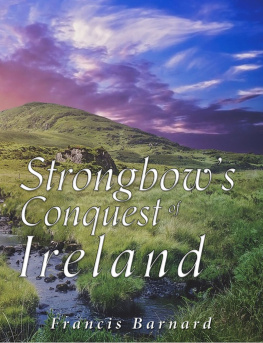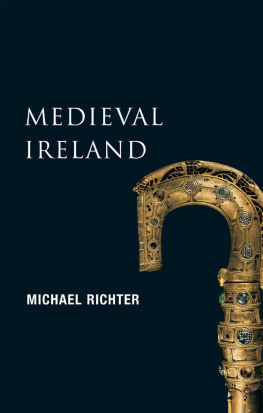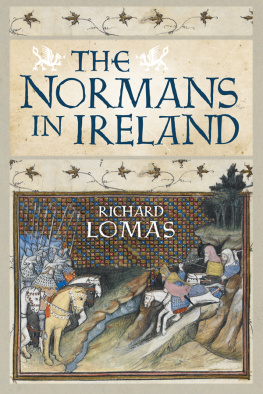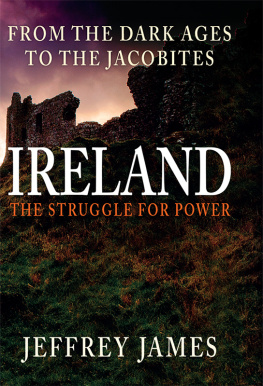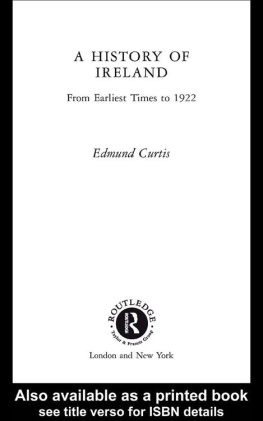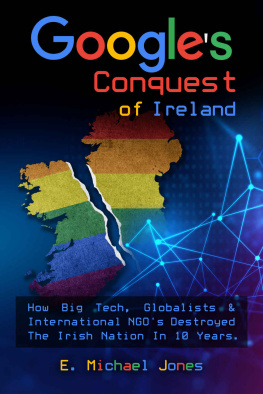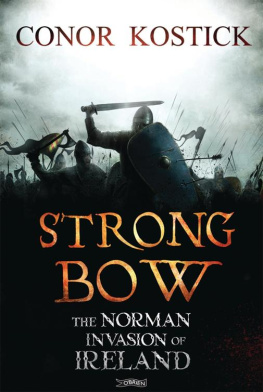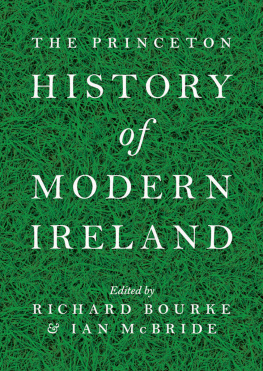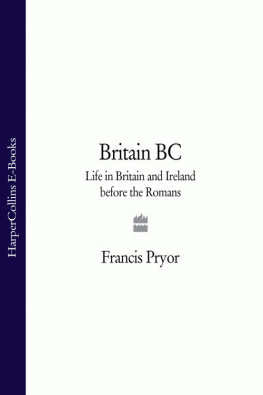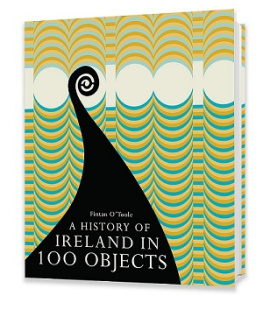Francis Barnard - Strongbows Conquest of Ireland
Here you can read online Francis Barnard - Strongbows Conquest of Ireland full text of the book (entire story) in english for free. Download pdf and epub, get meaning, cover and reviews about this ebook. year: 2018, publisher: Charles River Editors, genre: Art. Description of the work, (preface) as well as reviews are available. Best literature library LitArk.com created for fans of good reading and offers a wide selection of genres:
Romance novel
Science fiction
Adventure
Detective
Science
History
Home and family
Prose
Art
Politics
Computer
Non-fiction
Religion
Business
Children
Humor
Choose a favorite category and find really read worthwhile books. Enjoy immersion in the world of imagination, feel the emotions of the characters or learn something new for yourself, make an fascinating discovery.
- Book:Strongbows Conquest of Ireland
- Author:
- Publisher:Charles River Editors
- Genre:
- Year:2018
- Rating:5 / 5
- Favourites:Add to favourites
- Your mark:
- 100
- 1
- 2
- 3
- 4
- 5
Strongbows Conquest of Ireland: summary, description and annotation
We offer to read an annotation, description, summary or preface (depends on what the author of the book "Strongbows Conquest of Ireland" wrote himself). If you haven't found the necessary information about the book — write in the comments, we will try to find it.
Strongbows Conquest of Ireland is an amazing history of the Invasion of Ireland by the Normans.
Strongbows Conquest of Ireland — read online for free the complete book (whole text) full work
Below is the text of the book, divided by pages. System saving the place of the last page read, allows you to conveniently read the book "Strongbows Conquest of Ireland" online for free, without having to search again every time where you left off. Put a bookmark, and you can go to the page where you finished reading at any time.
Font size:
Interval:
Bookmark:
Strongbows Conquest
of I reland
BY
FRANCIS PIERREPONT BARNARD, M.A.,
Head Master of Reading School.
Illa ego sum Graiis olim glacialis Ierne
Dicta, et Jasoniae puppis bene cognita nautis.
This little book deals with an event of permanent interest to us. It tells the story of the first contact between the newly organized feudalism of Anglo-Norman England and the far older and more primitive civilization of the last independent Keltic states. The period embraced is from AD 1166 to 1186, and the accounts reproduced are taken from the best available original authorities on both sides, including some hitherto unpublished MSS. To the general reader it will not be found wholly uninstructive to read the history of the earliest political connection of England with Ireland.
In the translations an attempt has been made to reproduce the spirit and literary peculiarities of the authors, even though at times the result undoubtedly inclines to the grotesque. What Kingsley said of the old Teuton invaders of the Roman Empire, is true of the mediaeval chronicler; in his mental attitude he is like a big boy, half a man, half a child. One must, therefore, in the following pages be prepared to expect deviations from sober history; indeed, the Expugnatio of Giraldus Cambrensis, who is by far the most important authority, illustrates this characteristic to extravagance, and is a remarkable farrago of history, poetry, acuteness, credulity, egotism, zeal for the cloth, kinsman-worship, fairness, partiality, good nature, malignity, and pomposity, adorned with a medley of alliteration, conceits, puns, wit, satire, humour, sometimes sheer buffoonery, and now and then downright nonsense. Truly a writer . With regard to Geralds excerpts from the classics, even when he is evidently using texts such as we have now, his quotations are frequently not verbatim. Possibly in many instances he relied on his memory, but a considerable number of passages are wittingly altered and adapted without scruple to suit the requirements of the moment. It is necessary to add a word of warning against accepting his personal descriptions as entirely just. Praise or abuse must be discounted according as the character under dissection is that of a Geraldine or not
There is a class of readers whom I have hoped to securelearners. Some experience in school work has led me to believe that a short historical period or monograph, or a tractate on social economy, forms the best peg on which to hang the extra lessons to which most schoolmasters nowadays devote perhaps a couple of hours a week; hours likely to be none the less profitable and popular because they are not as a rule overshadowed by the looming terrors of a coming examination.
IN CONSIDERING THE HISTORY OF this land we are at once struck with the following remarkable fact. Whereas Greater Britain, an island like itself lying in the ocean, and at no great, distance, has been the scene of so many and such mighty wars, has been so often the victim of the depredations of foreign races, has been so frequently forced to bow the neck to an alien sway, has been taken and held first by the Romans, then by the Germans, again by the Danes, and lastly by the Normans, Ireland was left untouched even by Rome, Rome who extended her dominion right away to the inaccessible region of the Orkneys. Few and faint in the past have been the attacks from outside upon this isle of Ireland. Never did it know subjection, never did it lie prostrate at a conquerors feet, until the year from the Birth of our Lord one thousand one hundred and seventy-one.
Ireland, like England in days of old, was split up into several states, each with its king, and the whole country was rent by the discord which generally prevailed among them. In proportion as the realm was free from external aggression, so much the more miserably were the natives commonly engaged in tearing the bowels of their fatherland by their intestine feuds.
DERMOT MAC MURROUGH, PRINCE OF the men of Leinster, which is one of the five divisions of Ireland, possessed within our times the eastern seaboard of the island, over against Greater Britain, and separated from it only by the sea which flows between. Owing to his youth and inexperience in rule, he became an oppressor of the nobility, and began to tyrannize in a grievous and intolerable manner over the great men of his land. This of itself brought him trouble, which another circumstance contributed to increase; for he eloped with the wife of ORuarc, prince of the men of Meath, while the latter was absent on a distant expedition. Fickle and changeable is woman ever, and it is clear that from womanMark Antony and Troy can bear witness to the factalmost all the greater evils of the world have come.
King ORuarc was heart-struck both by his shame and by his loss, though he felt the former far more deeply than the latter, and in the bitterness of his wrath was bent upon revenge. He forthwith summoned and gathered together the strength of the neighbouring tribes as well as his own forces, and aroused to the same enterprise even Roderic, prince of the men of Connaught, then high-king of all Ireland. Now the chief men of Leinster seeing in what straits their prince was placed, that he was beset on all sides by the battalions of his foes, began to call to mind their own claims of vengeance for the grievances they had long smothered in their breasts; so that being now of one mind with the enemy they deserted Mac Murrough in this the hour of his misfortune.
Dermot, finding that his resources were falling away upon every side, that Fortune had turned her face from him, and that his position was becoming desperate, after many fierce but unsuccessful encounters with his adversaries, at length resolved, as his last chance of safety, to take ship and flee beyond the sea. The issue of events has often shown that it is safer to rule over willing subjects than over such as are disaffected. Nero found this out, Domitian too; and in our own times Henry, duke of Saxony and Bavaria. Better it is for any prince to be more loved than feared by those who are set under him; it is expedient, however, that he be feared as well, provided that the fear proceed rather from good-will than from coercion.
Meanwhile Dermot, in the pursuit of Fortune that had fled from him, and strong in his hope for some happy turn of her wheel, ploughed through the sea with all sail set and with the winds blowing fair in answer to his prayers, and came to Henry II., king of the English, for the purpose of earnestly imploring aid. Although the king was in the far part of his realm, over sea, in Aquitanian Gaul, and much engaged in business, as kings are wont to be, yet he received him kindly and graciously enough, with that affability and courtesy which was inborn in him. Then on hearing the cause of his exile and the reason of his coming over, he accepted his bond of allegiance and oath of fealty, and granted him letters patent to the following effect:Henry, king of England, duke of Normandy and Aquitaine, and count of Anjou, to all his liegemen, English, Normans, Welsh and Scots, and to all nations subject to his sway sends greeting. Whensoever these our letters shall come unto you, know ye that we have taken Dermot, prince of the men of Leinster, into the bosom of our grace and goodwill. Wherefore, too, whosoever within the bounds of our dominions shall be willing to lend aid to him, as being our vassal and liegeman, in the recovery of his own, let him know that he hath our favour and permission to that end.
Font size:
Interval:
Bookmark:
Similar books «Strongbows Conquest of Ireland»
Look at similar books to Strongbows Conquest of Ireland. We have selected literature similar in name and meaning in the hope of providing readers with more options to find new, interesting, not yet read works.
Discussion, reviews of the book Strongbows Conquest of Ireland and just readers' own opinions. Leave your comments, write what you think about the work, its meaning or the main characters. Specify what exactly you liked and what you didn't like, and why you think so.

